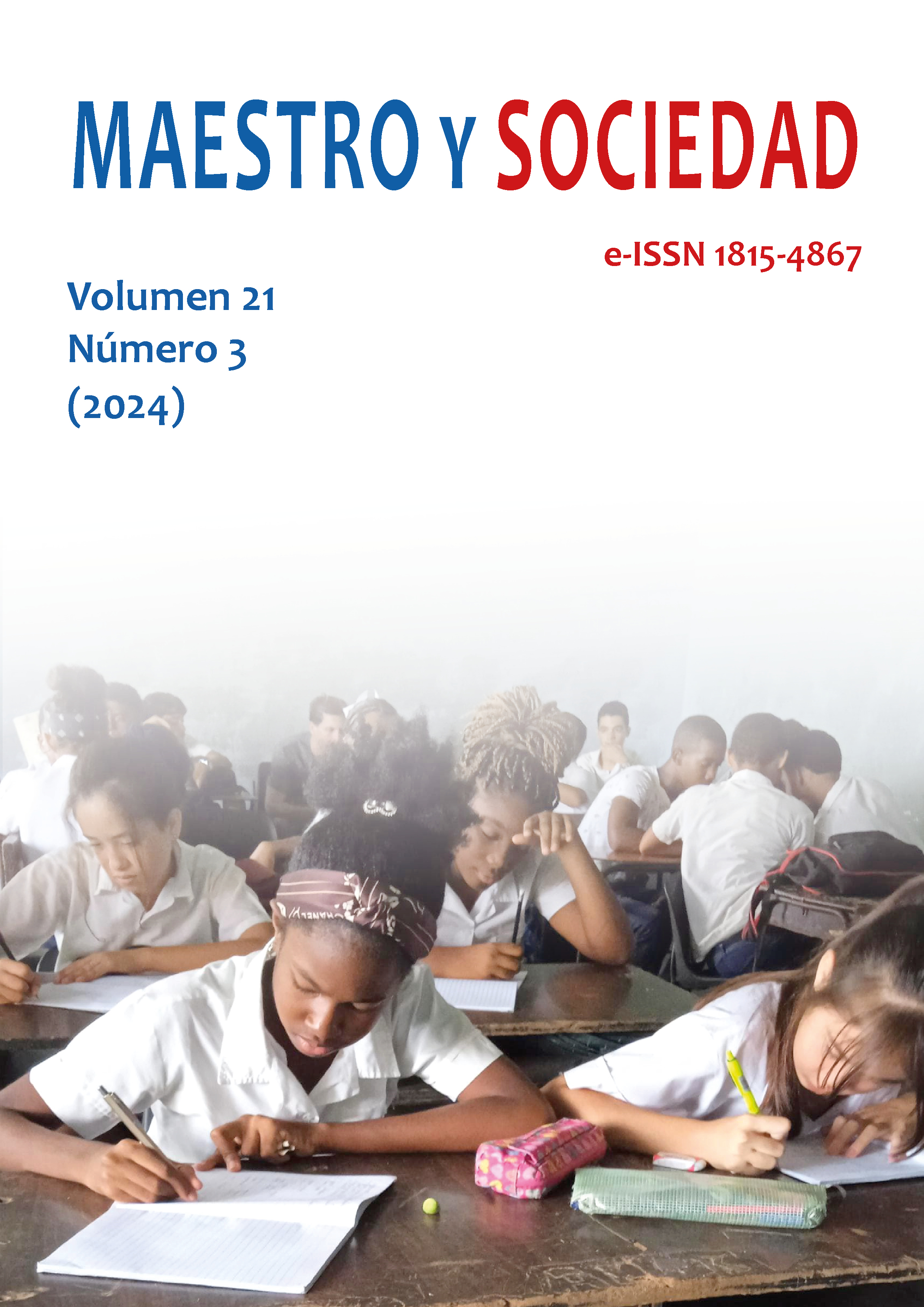Systematic review on inequalities in the use of digital technologies for educational research
Keywords:
technological inequalities, digital tools, scientific research, access barriers, mitigation strategiesAbstract
Introduction: Scientific research has been dramatically transformed with the advent of digital tools, which have improved efficiency and accuracy in data collection and analysis. However, these technologies are not equally distributed, generating important inequalities. Which can limit the quality and visibility of the research produced in these regions. The objective of this systematic review is to analyze inequalities in the access and use of digital tools in scientific research. Materials and methods: The PRISMA (Preferred Reporting Items for Systematic Reviews and Meta-Analyses) methodology was used to carry out this systematic review. Exhaustive searches were carried out in recognized databases such as Scielo, Latindex and Dialnet, covering publications from the last five years. Results: The results of the review indicate that financial limitations, lack of technological infrastructure and limited connectivity are the main barriers that perpetuate inequalities in access to digital tools. Discussion: These inequalities significantly affect the quality and efficiency of scientific research, limiting researchers' ability to perform complex analyzes and collaborate internationally. In addition, several proposed strategies were identified to mitigate these inequalities, such as the implementation of training programs in digital skills and the creation of collaboration networks. Conclusions: Inequalities in access to digital tools represent a significant barrier to scientific research, especially in developing countries. It is essential to implement effective strategies to mitigate these disparities and promote more equitable and efficient scientific research.
References
Díaz, M. L. L., Saca, D. F. S., Gómez, V. G., & Fernández, R. L. (2023). Herramientas digitales evaluadas por la analítica del aprendizaje en la contribución de la enseñanza de las matemáticas. Polo del Conocimiento: Revista científico-profesional, 8(10), 815-830
Enrique, L. E. P., Díaz-Chieng, L. Y., & Alfonso, E. A. H. (2023). Plagio académico y revistas científicas: criterios, acciones y concepciones para su prevención. Revista Conrado, 19(95), 188-198.
Espinosa, M. A. C., Romero, E. R., Flórez, L. Y., & Guerrero, C. D. (2020). DANDELION: Propuesta metodológica para recopilación y análisis de información de artículos científicos. Un enfoque desde la bibliometría y la revisión sistemática de la literatura. Revista Ibérica de Sistemas e Tecnologias de Informação, (E28), 110-122.
Gamarra, J. H. G., Escalante, C. A. C., Rivas, A. B. C., Apaza, F. M., Apaza, A. L., & Zamata, J. R. M. (2023). Capacidades de los sistemas educativos latinoamericanos para la aplicación de las herramientas digitales como el aula invertida.
Gracia, T. J. H., Avila, D. D., Herrera, L. A. G., & Flórez, D. T. (2022). Competencias digitales de docentes universitarios en la era del Covid-19: el caso de una Institución Educativa del centro de México. Cuadernos Latinoamericanos de Administración, 18(34)
Jadan, B. E. V., Vivar, S. A. M., & Rivera, D. P. P. (2023). Explorando la brecha digital en el acceso tecnológico y su influencia en la educación: abordando las diferencias entre comunidades. Dilemas Contemporáneos: Educación, Política y Valores.
Pineda, M. A., Arce-Polania, L. C., Torregrosa-Almonacid, L., Cabrera-Vargas, L. F., & Pérez-Rivera, C. J. (2021). Grupos de investigación colaborativa: ventajas e impacto en la investigación quirúrgica, un llamado desde ColombianSurg. Revista Colombiana de Cirugía, 36(3), 391-396.
Quispe Choque, M., & Nieto Rivas, E. (2024). Recursos educativos abiertos como herramientas didácticas para el logro del aprendizaje. Horizontes Revista de Investigación en Ciencias de la Educación, 8(33), 992-1003.
Reyes, N. S. (2023). Uso de las Tecnologías de la Información y Comunicación en la educación superior. Dominio de las Ciencias, 9(2), 1012-1020.
Yanarico Garcia, C. (2023). Uso de las herramientas digitales y el aprendizaje significativo en estudiantes de educación básica regular, 2023
Published
How to Cite
Issue
Section
License
Copyright (c) 2024 Maikel Ariel Ramos Morales, Jorge Mesa Vázquez

This work is licensed under a Creative Commons Attribution-NonCommercial-NoDerivatives 4.0 International License.
This journal provides immediate open access to its content, based on the principle that offering the public free access to research helps a greater global exchange of knowledge. Each author is responsible for the content of each of their articles.



























 Universidad de Oriente
Universidad de Oriente 